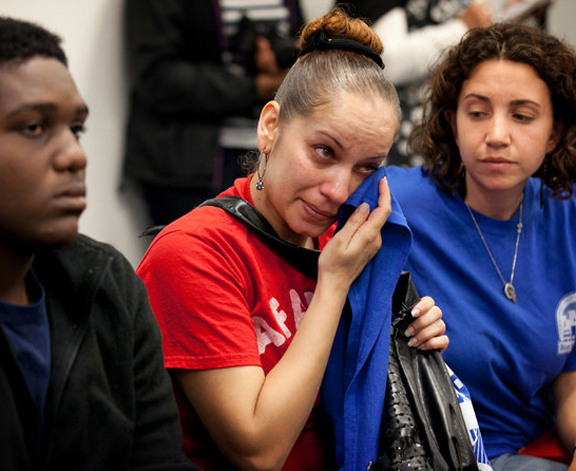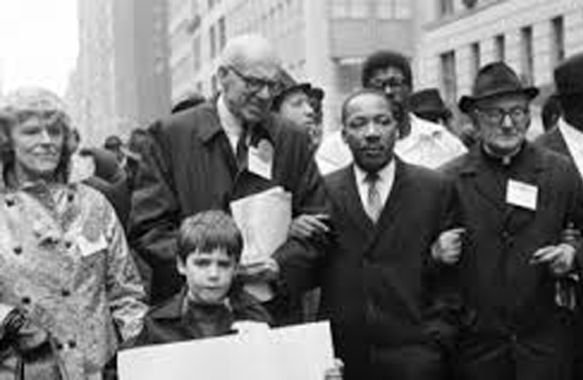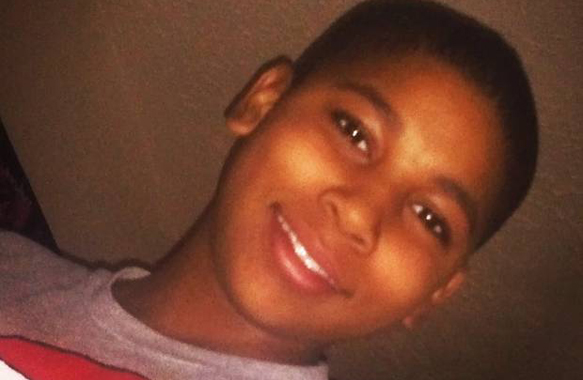Originally Published By Steven Yaccino. The New York Times. May 22, 2013
CHICAGO — Officials here in the third-largest district in the country voted Wednesday, after an emotional meeting, to close 49 public schools that they said were not being fully used.
The decision, passed overwhelmingly by the Chicago Board of Education, came after weeks of contentious public hearings that brought more than 34,000 people out to oppose the school consolidation plan at dozens of meetings across the city.
The move, which singled out schools that district officials said had too many empty desks after years of population loss — but that opponents argued unfairly targeted low-income minority communities — makes up the largest group of city schools to be closed at once in recent memory.
“The greatest challenge facing our school system right now is that tens of thousands of children every year are trapped in underutilized schools and under-resourced schools,” said Barbara Byrd-Bennett, the chief executive of Chicago Public Schools, who had to pause her remarks more than once when protesters began shouting. She later added, “We cannot maintain a system that cannot be sustained and does not benefit the children.”
Chicago now has 145,000 fewer school-age children than it had more than a decade ago, according to district data, and the district had already closed about 100 schools since 2001. In March, the Chicago Public Schools identified 53 more elementary schools that it planned to shutter, expecting to save about $500 million over 10 years in a district facing a $1 billion deficit.
The plan drew outrage from many parents in Chicago’s South Side and West Side areas. Opponents raised safety concerns about children having to walk farther distances, possibly crossing gang lines, to their new schools.
At the meeting on Wednesday, Ms. Byrd-Bennett removed four schools from her original recommended closing list, plus a fifth school she suggested should not be closed until next year. She said the district and the Police Department were working to develop a safety plan for consolidating schools.
Among the last-minute changes, the board decided to move Joseph Kellman Corporate Community, a West Side school not on the consolidation list, into the building of the nearby Mary McLeod Bethune Elementary School, which was voted to be closed Wednesday, giving the neighborhood an additional option for the next school year.
Tensions ran high during more than two hours of public comment, as teachers and parent made their final pleas to the board, at times shouting and weeping into a microphone at the front of the room. More than once, speakers were escorted from the room by security guards after refusing to yield after their allotted two-minute time periods. One protester sat down on the floor after speaking and chanted, “Every school is my school,” until she was carried out.
“These parents and these teachers are not dollar signs,” said Wanda Wilburn, a parent speaking out against all the school closings. “They are people with feelings and lives.”
Begging officials to keep her child’s South Side school from being boarded up, Sharon Taylor, a parent at Granville T. Woods Academy, added, “We have what you say my baby needs.”
In the end, only the four schools were spared, as Ms. Byrd-Bennett requested. But opponents say they are not done fighting. Last week, parents filed two lawsuits in federal court claiming that the closings would violate the Americans With Disabilities Act by uprooting and disrupting special education students.
One of those lawsuits also contends that the consolidation plan would disproportionately affect minority communities, violating Illinois civil rights law.
Motoko Rich contributed reporting from New York.












Leave A Comment